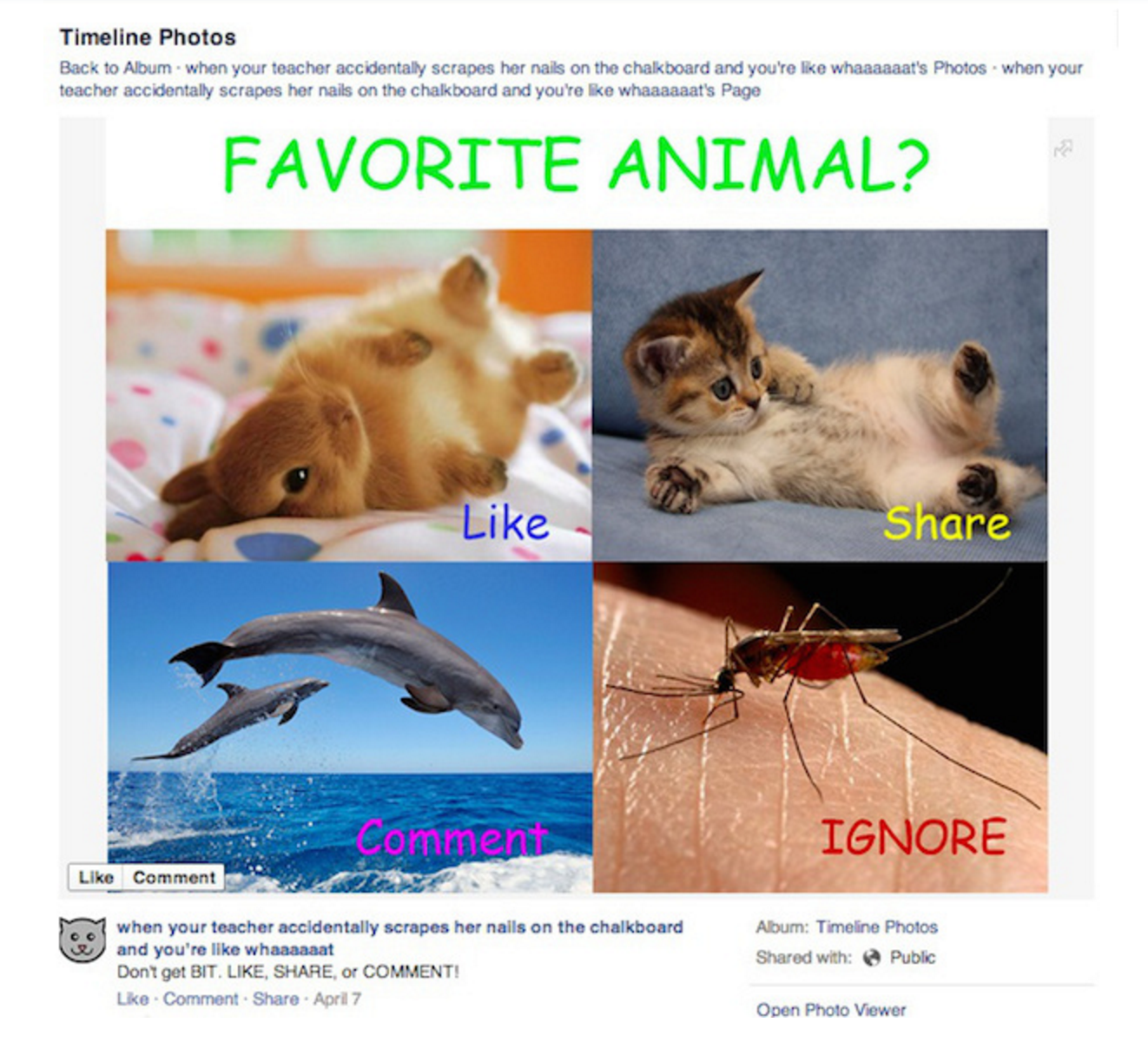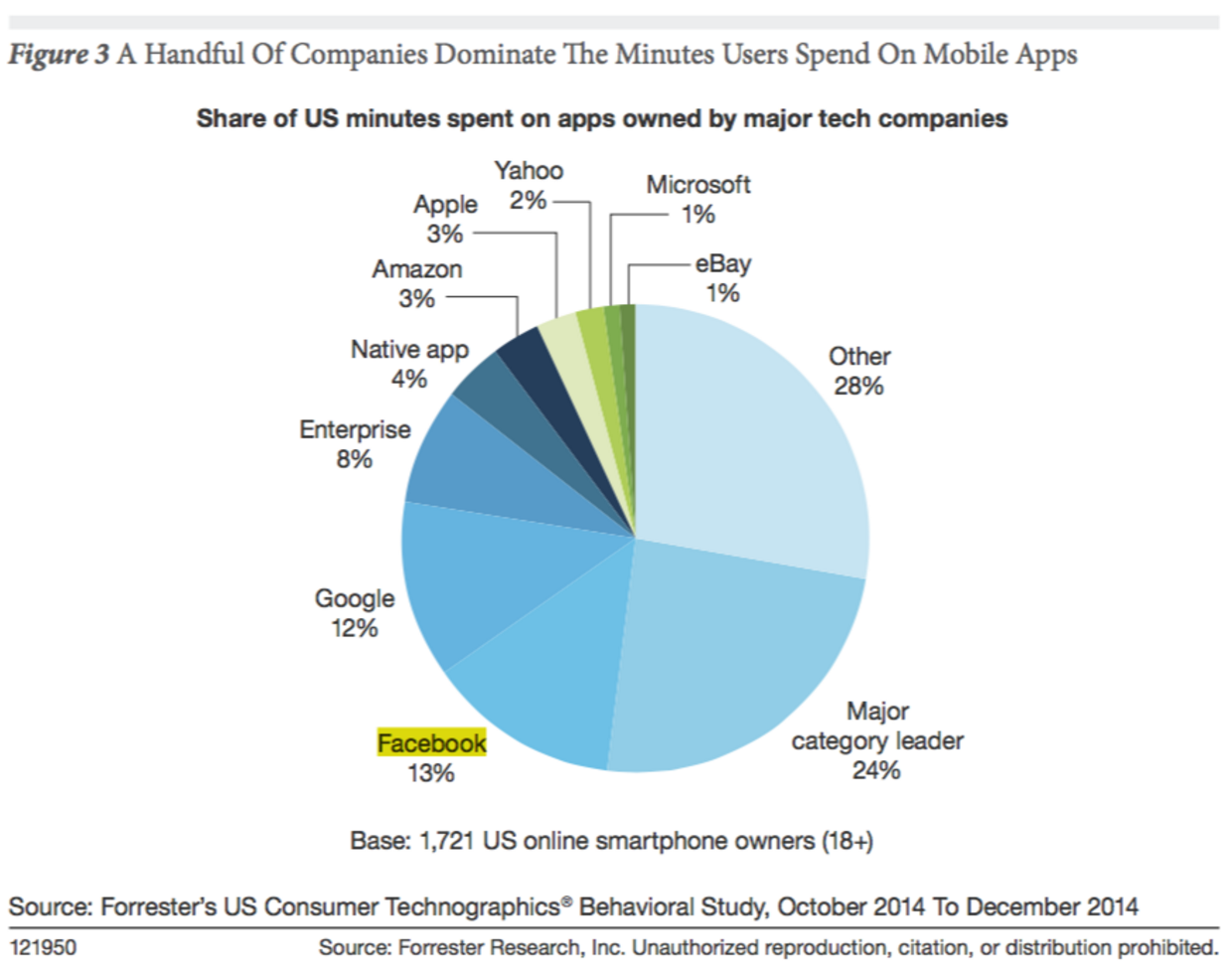
Why Everyone is Afraid of Google and Facebook – According to a Former Google Exec
Random Article
Why Everyone is Afraid of Google and Facebook – According to a Former Google Exec
It turns out everyone is afraid of Google and Facebook – at least according to former Google sales vice-president and current AOL chief-exec, Tim Armstrong.
More specifically, it’s the online duopoly being established between the two tech giants that has people concerned. From top execs at rival companies to the consumers who can’t escape their ads, everyone is fearing the worst.
The growing fear of a duopoly
“There’s a fear of a duopoly, overall,” Armstrong told Wall Street Journal in an interview this week. “It comes up with publishers, with advertising agencies, with marketers,” he said – revealing the same conversation came up in almost every meeting he held at the Cannes Lions advertising festival.
The industry is scared. And it’s not a fear reserved for the big tech firms, either. It filters down to the marketing agencies, the business owners they represent and the smallest retailers who feel priced out of the market.

The danger is real, too. Google and Facebook took 43% of last year’s global online ad revenue between them, according to research by eMarketer. And those numbers will only increase because there’s nobody close to stopping them.
The next web: Google and Facebook
Talk of a Google-Facebook duopoly is nothing new, of course. It’s the speed at which it is happening that’s the only surprise. The two firms have been pretty ruthless in their attempts lock users into their platforms, making it increasingly difficult to browse the web outside of Google and Facebook.
This has been happening for some time now but Facebook Instant Articles and Google’s Accelerated Mobile Pages (AMP) have taken things to a whole new level. The aim for them is to keep users locked in for longer so they can target them with more ads. The result for marketers and business owners, however, is less traffic as websites are increasingly cut out of the process.

AMP keeps users locked into Google as they browse and read content
Google has been doing this for quite some time now – not only locking users into its platform but promoting its own content ahead of rivals. These tactics have been aggressive enough to spark a string of legal battles in the US and EU with Google rivals queueing up to sue the company if it’s found culpable.
While all this is going on, the organic reach of Google and Facebook is growing increasingly smaller. Essentially, you can’t get seen on either platform without paying for ads anymore – and those ads are getting more expensive every year.
The digital marketing free ride is over
Gone are the days where having a website was enough to get your business seen online. Once upon a time, you could rely on Google and later Facebook to connect with a worldwide audience. It was a time where you would have been crazy not to have a website and take advantage of these free marketing channels. And now that just about every business Google and Facebook can make money from has a website, the free ride is over.
Where you couldn’t afford not to have a website before, you now can’t afford not to promote it with paid ads. Taking the organic route with SEO and social media simply doesn’t generate the audience you need on its own anymore. It’s a case of pay up or shut up. Worse still, the price of keeping your head above water increases every year – and once you can’t afford the going rate you sink.

Rising cost per click on AdWords ads, 2013-2015 – data from Merkle|RKG
None of this happens by accident, of course. The monetisation strategies of online tech firms are a calculated process. Google started out as a search engine for people seeking information. Facebook started out as a social network for people to connect. Now they’re both advertising juggernauts designed to make money by connecting brands to consumers.
It was a strategic process on both accounts – one that created a need for their services, left business owners dependent on them and then phased out the option to use them for free. Hook. Line. Sinker.
So you mean we have to actually pay for ads?
Yes, that’s right – we’re back to the dark ages where you have to pay to get your brand seen by consumers. How dare Google, Facebook and the others not let us use their platforms for free advertising.
In reality, forcing brands to pay for exposure was the only way to go. Their users, who they need to keep on board, don’t take too kindly to having ads rammed down their faces – and that goes for organic, promotional content, too. So there needs to be some kind of divide between paid and non-paid content. You have to say that’s fair enough, all things considered.

The kind of content Facebook weeded out with News Feed algorithms and paid ads
Sadly, this means brands who relied on free traffic/exposure and don’t have the budget to suddenly pay for it are in trouble. There’s also the fact you can’t simply pay up and guarantee you’ll get results; paid advertising is tricky and highly competitive. There’s always the risk you could spend big and get nothing in return.
Such is the nature of the beast, unfortunately, but this is nothing new in advertising. What’s concerning about the Google-Facebook duopoly is the lack of competition to keep these firms, their platforms and their prices in check.
The price of lacking competition
As things stand, it’s petty fair to say the only names that count in online advertising are Google and Facebook. None of the other players like Twitter or LinkedIn can really come close because they don’t have the mammoth userbases of the big two. They also don’t have the kind of platforms that can really enclose users like Google and Facebook either.

Data from Forrester shows how Google and Facebook apps dominate
This makes it difficult for advertisers to really consider other options right now and this is hiking up the prices of both channels. Pay-per-Click (PPC) works on a system of bids and the more advertisers who use them, the higher those bids climb. So the cost of using Google and Facebook increases every year and more businesses are priced out of the game.
PPC advertisers will tell you it’s not always a case of biggest budget wins – and that’s true to a large extent. The quality of your ads, the strategies you use and how you handle traffic once it lands on your site can all help you beat competitors with bigger budgets. However, the simple fact remains: the higher those top bids go, the more firms simply won’t be able to afford the entry fee.
At this stage paid advertising is screaming out for competition to rival Google and Facebook. Firms like AOL, Microsoft and the other big names certainly want in on the action, while brands are in need of alternatives to drive down the cost of available options. The concern for both parties is how difficult it seems even for the closest competitors like Microsoft to put up a decent fight.
How can other firms break the duopoly?
Facebook and Google are often touted as direct rivals and in many ways they are. Marketers even weigh up Google and Facebook ads against each other, as if they’re a like-for-like swap. They’re not at all.
Go back five years and Facebook was barely a threat to Google’s monopoly over online ads. Plans were in motion behind the scenes to claim a stake in the market and it later worked a treat. Meanwhile, Microsoft has been trying to compete with Google’s dominance for more than a decade and barely put a dent in it.
So what made Facebook such a powerful force so quickly? Well, Microsoft has failed at attempting to take Google head-on. Facebook, on the other hand, has swiped a massive chunk of the market share from under Google’s feet. Not by trying to beat it at its own game but by doing something Google can’t.
Google and Facebook aren’t as similar as you think
The key difference all comes down to user intent. Google ads revolve around people typing search queries; users who are actively looking for something. Facebook ads, on the other hand, find their way into people’s News Feeds as they casually browse content. Facebook users are not actively looking for anything; they’re discovering.
These are two very different, but important stages of the buying process consumers go though. So Google and Facebook aren’t actually stepping on each other’s toes here. They’re doing something completely different.
So, while the likes of Microsoft and Twitter have failed to beat the top two head-on, Google and Facebook have carved their own niches in the advertising market and it looks like nobody will take those away from them anytime soon.
All of this leaves the likes of AOL’s Tim Armstrong and his fellow tech buddies sitting on the sidelines with something to think about. Instead of trying to beat Google and Facebook at markets they’ve already cornered, perhaps they need to find a niche the two leaders can’t cater for. A user intent somewhere else along the buying process that allows advertisers to engage with consumers in a new way.



Comments
Take part in the discussion
Discussion about Why Everyone is Afraid of Google and Facebook – According to a Former Google Exec article, if you have any questions, comments or thoughts then get leave a reply.